United Nations Security Council Resolution 27 was adopted on 1 August 1947. The Council called for a ceasefire and a peaceful resolution between the parties from the Netherlands and Indonesia involved in the Indonesian National Revolution.
United Nations Security Council Resolution 31 was adopted on 25 August 1947. The Council formed a committee to assist in the peaceful resolution of the Indonesian National Revolution.
United Nations Security Council Resolution 32 was adopted by the United Nations Security Council on August 26, 1947. The Council formally reminded both sides of the Indonesian National Revolution to adhere to Resolution 27, which called for a ceasefire and peaceful resolution to the conflict.
United Nations Security Council Resolution 65, adopted on December 28, 1948, requested that the consular representatives in Batavia referred to in United Nations Security Council Resolution 30 send a complete report on the situation in the Republic of Indonesia, covering the observance of ceasefire orders and the conditions prevailing in areas under military occupation or from which armed forces now in occupation may be withdrawn.
United Nations Security Council Resolution 67, adopted on January 28, 1949, satisfied that both parties in the Indonesian Conflict continued to adhere to the principles of the Renville Agreement, the Council called upon the Netherlands to immediately discontinue all military operations and upon the Indonesian Republic to order its armed adherents to cease guerrilla warfare and for both parties to cooperate in the restoration of peace and the maintenance of law and order throughout the area. The Council further called upon the Netherlands to release all political prisoners arrested since December 17, 1948 and to facilitate the immediate return of officials of the Government of the Republic of Indonesia to Jogjakarta and afford to them such facilities as may reasonably be required by that Government for its effective functioning in that area.
The official languages of the United Nations are the six languages used in United Nations (UN) meetings and in which the UN writes all its official documents.
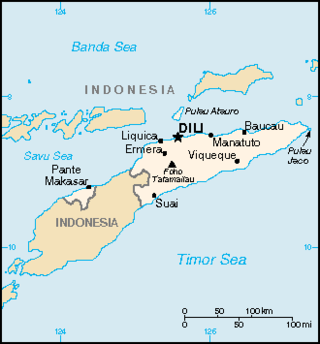
United Nations Security Council resolution 1236, adopted unanimously on 7 May 1999, after recalling previous resolutions on East Timor including 384 (1975) and 389 (1976), the Council welcomed an agreement between Indonesia and Portugal on the future of East Timor and a proposed United Nations presence to assist with the East Timor Special Autonomy Referendum scheduled for August 1999.
United Nations Security Council resolution 1246, adopted unanimously on 11 June 1999, after recalling previous resolutions on East Timor, particularly Resolution 1236 (1999), the council established the United Nations Mission in East Timor (UNAMET) to organise and conduct the East Timor Special Autonomy Referendum on the future status of East Timor, scheduled for August 1999.

United Nations Security Council resolution 1257, adopted unanimously on 3 August 1999, after recalling previous resolutions on East Timor, particularly Resolution 1246 (1999), the Council extended the mandate of the United Nations Mission in East Timor (UNAMET) until 30 September 1999.
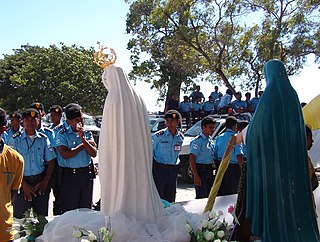
United Nations Security Council resolution 1262, adopted unanimously on 27 August 1999, after recalling previous resolutions on East Timor, particularly resolutions 1246 (1999) and 1257 (1999), the Council extended the mandate of the United Nations Mission in East Timor (UNAMET) until 30 November 1999.
United Nations Security Council resolution 1264, adopted unanimously on 15 September 1999, after recalling previous resolutions on East Timor (Timor-Leste), the Council authorised the establishment of the multinational International Force for East Timor (INTERFET) to restore peace and security in the territory, facilitate humanitarian assistance and protect the United Nations Mission in East Timor (UNAMET).
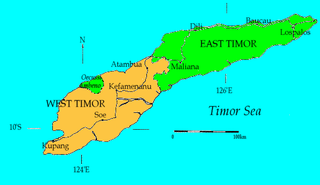
United Nations Security Council resolution 1319, adopted unanimously on 8 September 2000, after recalling previous resolutions on East Timor (Timor-Leste), the Council demanded that Indonesia take steps to disarm and disband militia on the island following the killing of three United Nations staff.

United Nations Security Council resolution 1338, adopted unanimously on 31 January 2001, after recalling previous resolutions on East Timor (Timor-Leste), particularly resolutions 1272 (1999) and 1319 (2000), the Council extended the mandate of the United Nations Transitional Administration in East Timor (UNTAET) for a year until 31 January 2002.
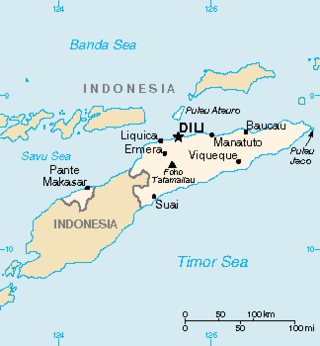
United Nations Security Council resolution 1392, adopted unanimously on 31 January 2002, after recalling previous resolutions on East Timor (Timor-Leste), particularly resolutions 1272 (1999) and 1338 (2001), the Council extended the mandate of the United Nations Transitional Administration in East Timor (UNTAET) until 20 May 2002.
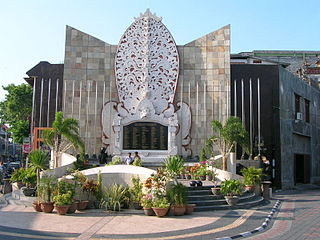
United Nations Security Council Resolution 1438, adopted unanimously on 14 October 2002, after reaffirming the principles of the United Nations Charter and Resolution 1373 (2001), the Council condemned the bombings in Bali, Indonesia.

United Nations Security Council resolution 1480, adopted unanimously on 19 May 2003, after reaffirming previous resolutions on East Timor (Timor-Leste), particularly resolutions 1410 (2002) and 1473 (2003), the council extended the mandate of the United Nations Mission of Support to East Timor (UNMISET) for a period of twelve months until 19 May 2004.

United Nations Security Council Resolution 1757 was adopted on 30 May 2007.

The United Nations Supervision Mission in Syria (UNSMIS) was a United Nations peacekeeping mission in Syria, set up in 2012 as a result of United Nations Security Council Resolution 2043 in response to the Syrian Civil War. It was commanded by Norwegian Major General Robert Mood until 20 July 2012 followed by Lieutenant General Babacar Gaye from Senegal. Although observers remain in the country, Mood suspended their mission on June 16, 2012, citing "escalating violence". Observers will conduct no further patrols and stay in their current positions until the suspension is lifted. On 20 July 2012, the Security Council extended UNSMIS for a final period of 30 days. According to resolution 2059, the Council would only consider more extensions in the event that the Secretary-General reports and the Security Council confirms the cessation of the use of heavy weapons and a reduction in the level of violence sufficient by all sides to allow UNSMIS to implement its mandate.
Events in the year 1947 in Indonesia. The country had an estimated population of 71,460,600 people.
Events in the year 1948 in Indonesia. The country had an estimated population of 72,979,300.









